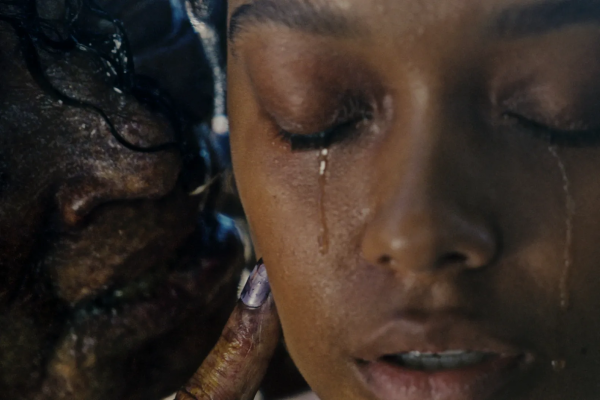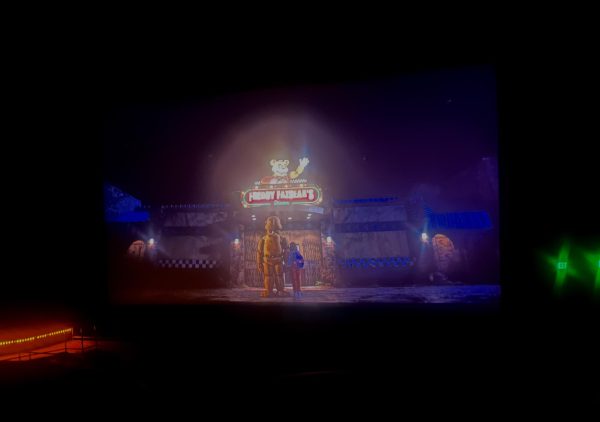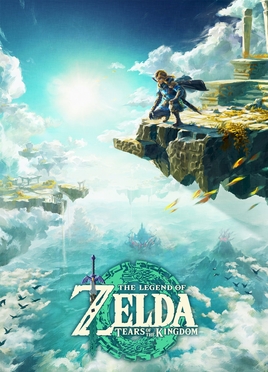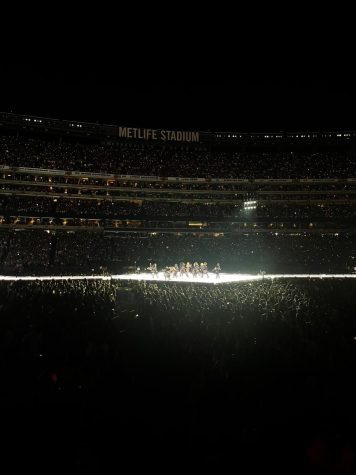Dune – Review
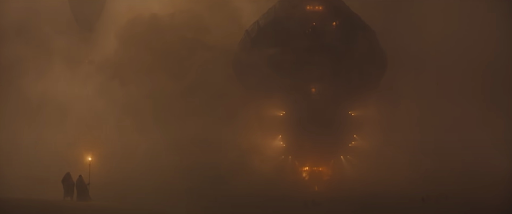
December 8, 2021
No science fiction lover can deny the cultural footprint of Frank Herbert’s 1965 novel Dune. The genre defining book’s legacy can be felt in a cult following of devoted fans, widespread critical praise that lasts to this day and perhaps most notably through certain concepts found in the Star Wars universe that George Lucas clearly derived from Dune. Yet despite these achievements, Dune is not as well known to the everyday individual as say, The Lord of the Rings is. In my opinion, there are many reasons for this lack of widespread love for Herbert’s magnum opus but a key factor is that Dune has been deemed by many to be unadaptable. Avant-garde filmmaker Alejandro Jodowrosky failed to make his insanely bizarre adaptation in the 1970s that could have been 14 hours long if made and would have boasted an ensemble cast including Salvador Dali and Orson Welles (there’s a documentary about it if you’re interested.) In 1984, surrealist icon David Lynch was able to release a Dune film but it was quickly deemed a terrible critical and financial failure that didn’t capture what made the novel a classic text. Lynch himself has since disowned the film. Now French-Canadian director Denis Villeneuve, who is hot off of a long winning streak of great films such as Sicario, Arrival and Blade Runner 2049, has made a second on-screen incarnation of Dune (or rather two- thirds of it but we’ll get to that.) After seeing the highly anticipated film, I firmly believe he has finally cracked the novel in what is possibly the best movie of 2021.
Taking place thousands of years into the future, Dune depicts a humankind that has spread throughout the galaxy, with different planets being ruled over by feudal houses under the command of the Padishah Emperor Shaddam IV. This power system revolves around the spice Melange which can only be found on the desert planet of Arrakis. The spice fuels space travel, allows for longer life spans and grants certain people enhanced mental powers. The story follows Paul Atreides (Timothee Chalamet) , the son of Duke Leto Atreides (Oscar Issac) , as his house is granted control of Arrakis and its spice by the Emperor’s decree. However, the Emperor has only done this so the Atreides’ rivals, the brutal House Harkonnen can attack Arrakis to wipe out Duke Leto and his family. Unbeknownst to the Harkonnens is that Paul Atredies is the result of a decades long breeding program led by the secret sisterhood, the Bene Gesserit , to create a superhuman being with vast psychic abilities. When the Harkonnens attack, Paul and his Bene Gesserit mother, Lady Jessica (Rebecca Fergeson) flee to the desert to seek the aid of the Fremen, a race of people who are native to Arrakis and believe Paul to be their prophesied messiah.
Dune requires a cinematic vision attuned to both the immense scale of its sprawling world and the small intricacies Herbert embedded in the novel’s lore. Villeneuve and co-writers Eric Roth and Jon Spaihts rely on exposition to convey many of the core concepts of the Dune universe to the audience yet it never feels like the script is force feeding the viewer endless information. The great performances delivering the loads of information paired with visual examples of the ideas being presented makes the exposition feel far more organic than most lazily delivered briefings in modern blockbusters.
On the note of the visuals in Dune , they are astounding and possibly some of the best put to film in the past ten years. Denis Villeneuve’s films have always been filled with beautiful cinematography and Dune is arguably his best looking film to date. Nearly every shot instills a sense of awe within the viewer. From the ominous shots of ships slowly descending from space into a planet’s orbit , akin to 2001: A Space Odyssey to a medium shot of the hulking Baron Harkonnen (Stellan Skarsgard) emerging from a bubbling tar like substance similar to Martin Sheen in Apocalypse Now, Villeneuve and cinematographer Greig Fraser make their cinematic inspirations apparent yet integrate them seamlessly to create an atmosphere unlike most big budget studio tentpoles .
The film also highlights the novel’s themes of imperialism brilliantly. For those who are unfamiliar with the book (or are and perhaps misread it) Dune is a critique of colonialism and messiah figures. Some have read Paul Atreides becoming the Fremen leader and leading them to fight for him as clear evidence of Dune being a “white savior” narrative in which the noble man coming from royalty “tames” an indigenous population for the better. However, Dune does not see Paul as a savior at all. His use of the Fremen is meant to be seen as manipulative subjugation especially when the book’s sequels are taken into context in which Herbert depicts Paul as a tyrannical ruler whose reign has resulted in mass genocides across the universe.
Villenueve and Fraiser’s use of scale is not only technically impressive but embodies the inescapable power of the imperial machine. Paul doesn’t want to inherit the reins of this dark empire and the Duke Leto has aspirations of working with the Fremen to create a fair balance of power but both desires are futile. When House Atreides lands on Arrakis and battalions emerge from their gargantuan ships and roll out onto the sand planet, the cinematography and score make the scene feel anything but triumphant. A sense of doom hangs over every frame of the film, implemented through Hans Zimmer’s foreboding music and the massive wide shots of ships and sand worms that render humanity insignificant as if the universe itself is scheming against the Atreides’ hope for a peaceful order.
My only major criticism of the film is that these themes are somewhat dampened by the lack of MENA (Middle Eastern and North African) actors in the roles of the Fremen. When writing the book, Frank Herbert based the Fremen and many aspects of the Dune universe on Muslim culture. While Herbert has rightly been critiqued for writing the Fremen (and therefore MENA people) through a conservative orientalist lens, he at the very least interacted with Islam and its core ideas in interesting ways throughout the series (read Haris Durrani’s in-depth article “The Muslimness of Dune” for further context.) Casting Zendaya and Javier Bardem as the prominent Fremen characters is a slap in the face not only to Muslim audiences hungry for representation, but also to the core roots of Dune. This casting decision is made worse by the stripping of Muslim language from the novel. In the book, the future war Paul sees in spice-induced visions is called a “jihad” while in the film it is now referred to as a “holy war.” According to writer Jon Spaihts, the erasure of the Arab terms came from a desire to curb the initial story’s orientalism. While possibly well-intentioned, this creative choice causes far more problems than it solves, showing an unwillingness to actually work with Arab writers to intelligently integrate the MENA influences of Herbert without his problematic tendencies. Even in the face of the immense achievements of Villeneuve’s Dune, these blunders stand out as a huge disappointment.
A different critique that has been lobbied against the film is that it is “incomplete.” Despite being over two hours and thirty minutes, Dune only covers a little less than half of the book. I was not surprised to see this as the book is seven hundred pages long so to avoid the pitfalls of being too long to be feasibly made (Jodowrosky’s problem) or being too short to capture the depth of the text (Lynch’s problem) by adapting the book in two parts is a wise decision. The film never feels “incomplete” as some have suggested. Dune has a clear beginning, middle, and end that never lose pace or momentum. There is a decent bit of build-up in the first act, but it always feels engrossing as the world building of the film unfolds.
Overall, Dune is a masterful adaptation of a beloved sci-fi classic.
*****/*****










